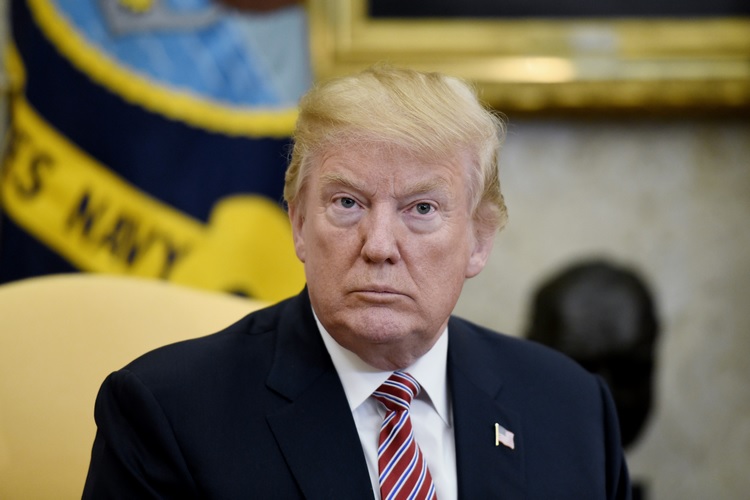
The internet despises Donald Trump and Google is not able to do much about it.
Google’s CEO Sundar Pichai was summoned for a round of grilling by a committee comprising of US Senators, yesterday. While the session was primarily around the tech giant’s role in maintaining a fair and indiscriminate platform for searching anything on the internet, some lawmakers were more curious about how Google manages to goof up results.
Rep. Zoe Lofgren of California asked Pichai about how and why Google shows Trump’s photo when people search for the word “idiot”. Lofgren performed a search “just” before asking the question and driven by curiosity, we did too and as you can see in the image below, searching for idiot does indeed show images of Trump.
Pichai defended by saying that a Google search takes more than 200 factors into account while compiling results. Everything from the relevance of the keyword, to the popularity of a certain page or website, to show appropriate results. He added, “just as a fact” almost 15 percent of the searches that Google processes each day are completely new and never searched before.
The reason behind this query was perhaps an attempt to clarify that these searches would be representational of what websites with high page rank are saying about Trump, and not necessarily a manipulation by Google – as alleged by Republicans. To add more clarity, Rep. Lofgren asked Pichai, “So it’s not some little man sitting behind the curtain figuring out what we’re going to show the user. It’s basically a compilation of what users are generating, and trying to sort through that information?”
Pichai denied the possibility of a single person or even a group of people being able to manipulate search results, even if they work for Google. However, Republicans seemed far from convinced that these search results are not controlled by a “little man” manipulating these search results.
By throwing in a bunch of technical jargons, Pichai easily dodged the question, which was reminiscent of how Mark Zuckerberg evaded questions during his hearing earlier this year. Responding to Rep. Steve Chabot of Ohio, he added, “we use the robust methodology to reflect what is being said about any given topic at any particular time. And we try to do it objectively, using a set of rubrics.”
CONGRESS: "When I type in the word 'idiot' images of Donald Trump appear."
GOOGLE: "Yeah, we told you it works." #GoogleHearing pic.twitter.com/SMofyukcdd
— Mrs. Betty Bowers (@BettyBowers) December 11, 2018
Pichai, further, assured the representative from Ohio that Google is free from any political bias. He said, “our algorithms have no notion of political sentiment in it.” However, part of the onus does lie on Google as the company has launched a fight against fake and misleading search results, primarily because the objective of search is to not resonate with opinions but to provide reliable information that can form the basis of logical opinions.
In India too, Google had to face a similar predicament when the search for “top ten criminals in the world” showed an image of PM Narendra Modi. Here, the issue was not dealt through discourse but through a criminal case against Google in an Allahabad district court, even after the tech giant issued an apology for the result.
As for now, Modi’s picture still hangs there alongside Osama Bin Laden, Dawood Ibrahim, and other known criminals – even though Google search now shows a Wikipedia article listing the world’s most dangerous criminals. The list also features pop singer Justin Bieber but I doubt this is because of “Baby”, YouTube’s most disliked video.
Notably, Google has added a disclaimer saying, “These results don’t reflect Google’s opinion or our beliefs; our algorithms automatically matched the query to web pages with these images.” Even so, it needs to explain every now and then how search actually works, which it would seem not many know about.